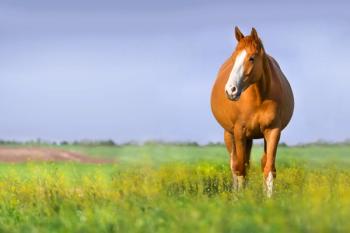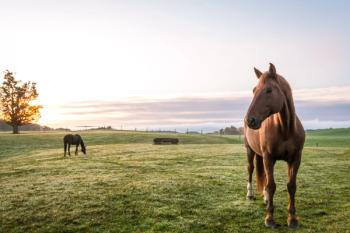
Eight suspected cases of equine herpesvirus reported in Tennessee
Horses may have been exposed after participating in a recent trail ride event.
The Tennessee Department of Agriculture recently received reports of at least eight suspected cases of the neurological form of equine herpesvirus (EHV-1) in horses that participated in a trail ride in Tennessee. The Bucksnort Trail Ride, an event that drew approximately 100 horses from across the country, took place April 23-30 in Humphreys County.
The state veterinarian's office has obtained a list of participants from the event and is in the process of contacting them about the possibility of EHV-1 exposure. Horses that attended the event are being evaluated on a case-by-case basis to determine whether to restrict their movements and by how much. No other trail rides and show events are affected at this time, Tennessee officials say, but they recommend that event organizers and participants take necessary precautions when planning or attending events.
The Tennessee Department of Agriculture has issued the following recommendations for horse owners who attended the Bucksnort Trail Ride:
- Do not move your horse from your premises for 21 days after the potential exposure that occurred April 23-30.
- Isolate and monitor your horse's health for seven to 10 days by obtaining a rectal temperature twice daily. Contact your veterinarian if your horse's temperature exceeds 101.5 degrees Fahrenheit or if other signs of disease develop (signs of EHV-1 include fever, nasal discharge, wobbly gait, hind-end weakness, dribbling of urine and diminished tail tone).
- Consult your veterinarian about preventive health measures such as vaccinations.
Veterinarians are asked to report any horse that exhibits clinical signs of EHV-1 to the state veterinarian. A quarantine order will then be issued to isolate and monitor the affected horse. In addition, horse owners are reminded to implement good biosecurity practices, such as using their own trailers and equipment, preventing their horse from touching other horses, disinfecting their shoes and equipment, washing their hands after coming into contact with other people's horses and limiting access to their farm.
Newsletter
From exam room tips to practice management insights, get trusted veterinary news delivered straight to your inbox—subscribe to dvm360.





